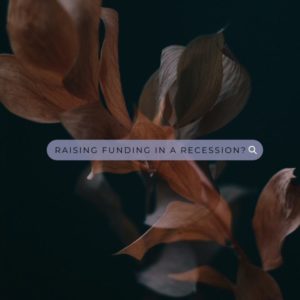Leading organisational transformation means embracing selflessness. It is about focussing on something bigger, outside the self. And this is by no means easy. It requires character as much as commercial skill. It is a calling that requires working behind the scenes more than working in the spotlight. And only receiving the applause with successful completion.
“We live in and as individual bodies, each one mortal and often suffering. Empathy is the foundation of the sense that ‘I am not alone, others are with me, we are in this together, we share a common humanity.”
These are the words of Dr. Dan Siegel, a clinical professor of psychiatry at the UCLA School of Medicine. When I heard them, I was leading transformation at an organisation and their meaning really sang to me. Feeling quite alone in my mission of change, I harnessed empathy to bring colleagues on board. With people inherently scared of change, this took time. However, with purpose and love at my core, I was able to believe that others were with me.
[Leading transformation requires character as much as commercial skill. It is a calling that requires working behind the scenes more than working in the spotlight. And only receiving the applause with successful completion]
As leaders, we can often feel a sense of isolation, especially in uncertain times, and especially when we are driving transformation. As humans, we look for approval, for validation from others, but as leaders this support can be hidden or hard to come by.
A good analogy comes in the shape of a tightrope walker. While they are alone in their need for balance, others on the ground are cheering them on and sharing their focus, whether they can hear or see them or not. Meanwhile, some may be willing them to fall, but nevertheless are elated or relieved when they reach the end of the tightrope and complete their goal.
You need people as your safety net and to ensure that they are there with, and for you, you need empathy. You need to match IQ (intelligence quotient) and EQ (emotional quotient) with LQ (love quotient).
As Chris Wise, leadership coach and founder of business consultancy Wise Profits, puts it: “Just as EQ informs the world’s understanding about emotions and their impact on how we communicate and IQ gives us the means to measure intellect, LQ is humanity’s tool for understanding our own capacity to love. It also highlights the necessity for us to do so.”[1]
[As humans, we look for approval, for validation from others, but as leaders this support can be hidden or hard to come by]
This love is not only vital to aligning people within an organisation to your vision, but also integral to ensuring that that vision ladders up to meaningful impact on a larger scale. It is how leaders are able to boost profits through purpose. After all, according to Edelman, nearly two-thirds of global consumers are “Belief-driven Buyers [who] will choose, switch, avoid or boycott a brand based on where it stands on the political or social issues they care about”.
Leading from a place of love and empathy ensures that you can drive change based on your own beliefs, but perhaps more importantly, understand and incorporate the beliefs of your customers and colleagues. This is particularly important in times of extreme turbulence and uncertainty. Times like now.
While you might not agree with others, there is power in unity. By striving to understand different points of view, you can create real and meaningful change. It means you can create power with people, rather than over them. It establishes a sense of belonging that reduces fear and boosts security. It makes us focus on the journey, as well as the result. And it builds long-term resilience that future proofs an organisation.
[By striving to understand different points of view, you can create real and meaningful change. It means you can create power with people, rather than over them]
As Rasmus Hougaard and Jacqueline Carter of global leadership, organisational development and research firm Potential Project, write in a piece for Harvard Business Review entitled Ego is the Enemy of Good Leadership: “Breaking free of an overly protective or inflated ego and avoiding the leadership bubble is an important and challenging job. It requires selflessness, reflection, and courage.”[2]
Here are a few tips to help you build and maintain resilience and courage through processes of selflessness and reflection as a leader of transformation:
- Focus on the journey, rather than just the outcome. Accept that some things may be out of your control, but that these things might make the journey and outcome more interesting and impactful.
- Confide in someone outside the situation who will give you the empathy you need. Tell a friend or loved one of your struggles and embrace their support
- Speak up. Use compassion and honesty to talk to other influential leaders within the organisation about the challenges you’re facing. A problem shared, is truly a problem halved.
- Reflect on your thoughts, words and actions. At the beginning and end of each day, take time to check-in with yourself and others and think about how you might approach things differently or appreciate where you handled things well.
- Act with empathy by also reflecting on other people’s words and actions. Think about why they said something or acted in a certain way. Think if there are any ways you can support them.
- Indulge in self-care. Instead of turning to bad habits, such as alcohol, look to meditation, exercise, childcare, socialising or other positive activities that give you energy.
- Always remember your bigger purpose. Why are you doing this? What positive changes will your transformation efforts bring about?
Above all, practice kindness, love and empathy. Then, you’ll be able to harness the power of selflessness while driving real and meaningful change. And the next time you face a similar challenge, you’ll realise how much resilience you’ve built. That you can achieve things you didn’t think possible, like walking a tightrope hundreds of metres high.
[1] https://thelovequotient.org/about-love-quotient/
[2] https://hbr.org/2018/11/ego-is-the-enemy-of-good-leadership





